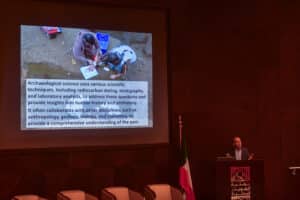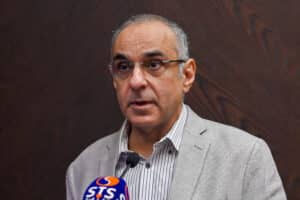Kuwait Hosts Workshop on Nuclear Technology for Relic Preservation
Kuwait’s National Council for Culture, Arts, and Literature (NCCAL) launched a workshop on Sunday to explore the use of nuclear technology in relic preservation. The International Atomic Energy Agency (IAEA) and the Kuwait Institute for Scientific Research are participating in the event. Acting Secretary-General of NCCAL, Mohammad Al-Jassar, praised the efforts of participants and organizers, emphasizing the workshop’s role in enhancing the skills and abilities of professionals in the fields of archaeology and museums.
Practical Applications and Theoretical Discussions
Mohammad bin Redha, the head of the antiquities and museums department at NCCAL, explained during his speech that the workshop combines practical applications and theoretical discussions. Dr. Nader Al-Awadhi, the IAEA communications officer, highlighted the agency’s contributions to advancing the benefits of nuclear technology. With IAEA’s support, Kuwait has made significant progress in utilizing nuclear technologies across various sectors, including social, economic, health, and environmental domains.
Nuclear Technology’s Role in Archaeology and Relic Preservation
Dr. Al-Awadhi also elaborated on the role of nuclear technology in archaeological excavations and relic preservation. He emphasized that nuclear technologies are crucial for tasks such as determining relic age, understanding composition, protecting against decay, eradicating harmful bacteria and fungi, and repairing tears in relics. The integration of nuclear technology in archaeology not only enhances preservation efforts but also provides valuable insights into the past.
Four-Day Workshop to Promote Expertise Exchange and Identify National Requirements
The workshop is scheduled to run for four days, facilitating the exchange of expertise and raising awareness among participants. Furthermore, the event aims to identify national requirements while considering existing capabilities. Dr. Al-Awadhi expressed optimism that the workshop will generate useful recommendations and strategies to bolster relic preservation efforts. Renowned Lebanese archaeologist Asad Saif expressed his appreciation for the workshop’s valuable content and his gratitude for the opportunity to attend.
Conclusion
The workshop initiated by Kuwait’s NCCAL explores the practical applications of nuclear technology in relic preservation and archaeology. With the participation of the IAEA and the Kuwait Institute for Scientific Research, advancements in nuclear technologies are being harnessed to safeguard relics, determine their composition and age, and prevent decay. The four-day event serves as a platform for the exchange of expertise and the identification of national requirements. By harnessing nuclear technology, Kuwait and the international community are taking significant strides towards enhancing archaeology and museum preservation efforts.
-Lebanese archaeologist Asad Saif hailed the valuable content of the workshop, saying he is grateful for the opportunity to attend. – KUNA




